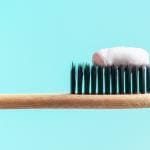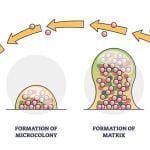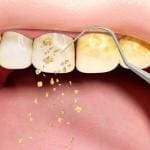Oral health is an essential aspect of overall well-being, and maintaining a healthy mouth is crucial for a beautiful smile, effective communication, and proper nutrition. While we often associate dental care with brushing, flossing, and regular dental check-ups, it is important to recognize the role that hormones play in oral health. Hormonal changes, whether natural or induced, can significantly affect the oral cavity, leading to a range of dental and periodontal issues. In this article, we will delve into the complex connection between hormones and oral health, exploring the impacts of hormonal changes on various aspects of dental well-being.
Hormonal Changes and Oral Health
Throughout a person’s life, various hormonal changes occur, starting from puberty and continuing through adulthood and into menopause or andropause. These hormonal fluctuations can influence oral health in several ways. Hormones have a profound impact on the oral tissues, including the gums, saliva, and bone structure, leading to changes that may increase the risk of oral diseases.
Puberty and Oral Health
During puberty, both boys and girls experience a surge in hormonal activity, including an increase in estrogen and progesterone in girls and testosterone in boys. These hormonal changes can contribute to a higher incidence of gum inflammation and gingivitis. The gums may become more sensitive and prone to bleeding, a condition known as puberty gingivitis. Maintaining good oral hygiene practices, including regular brushing, flossing, and dental visits, becomes crucial during this phase.
Pregnancy and Oral Health
Pregnancy is another stage where significant hormonal changes occur. The increased levels of estrogen and progesterone during pregnancy can affect the oral cavity, leading to various oral health issues. Pregnant women may experience pregnancy gingivitis, which is characterized by red, swollen, and tender gums that bleed easily. Hormonal changes can exaggerate the body’s response to plaque bacteria, increasing the risk of gum disease. This emphasizes the importance of regular dental check-ups and professional cleanings during pregnancy to maintain optimal oral health.
Menopause and Oral Health
Menopause brings a decline in estrogen and progesterone levels in women. This decrease in hormone production can lead to a range of oral health issues. Women entering menopause may experience dry mouth, a condition known as xerostomia. Reduced saliva flow can increase the risk of dental caries, gum disease, and oral infections. It may also cause discomfort, difficulty in swallowing, and altered taste perception. Seeking professional dental care and maintaining good oral hygiene practices, along with staying hydrated, can help alleviate the symptoms of xerostomia.
Oral Contraceptives and Hormone Replacement Therapy
Oral contraceptives, commonly referred to as birth control pills, contain synthetic forms of estrogen and progesterone. While these medications are generally safe, they can still affect oral health. Some women may experience gingival enlargement, characterized by the swelling and overgrowth of gum tissues. This condition is more common in individuals with pre-existing gum disease. Proper oral hygiene practices and regular dental visits are essential for those using oral contraceptives to minimize the risk of complications.
Hormone replacement therapy (HRT) is another factor that can impact oral health, particularly in postmenopausal women. HRT involves the use of estrogen and sometimes progesterone to relieve menopausal symptoms. Studies suggest that estrogen therapy may help improve oral health by reducing the risk of tooth loss, promoting bone density, and improving gum health. However, individual factors should be considered, and consultation with healthcare professionals is crucial before starting or modifying any hormonal therapy.
Impacts of Hormonal Changes on Oral Structures
Apart from the effects on oral tissues and gum health, hormonal changes can impact the structure and integrity of the oral cavity.
Bone Health and Tooth Loss
Estrogen plays a vital role in maintaining bone density, including the jawbone. Postmenopausal women experience a decline in estrogen levels, which can contribute to reduced bone density in the jaw. This can lead to tooth loss, as the supporting bone structure weakens. Additionally, osteoporosis, a condition characterized by decreased bone density, can affect the jawbone and increase the risk of dental implant failure. Maintaining a healthy lifestyle, including regular exercise and a balanced diet, can help preserve bone density and minimize the risk of tooth loss.
Temporomandibular Joint (TMJ) Disorders
Temporomandibular joint disorders (TMD) affect the jaw joint and the surrounding muscles. Hormonal changes, such as those occurring during puberty, pregnancy, or menopause, can influence the development or exacerbation of TMD symptoms. Increased levels of estrogen and progesterone during these stages may contribute to joint laxity and muscle hypermobility, leading to jaw pain, clicking, and difficulty in opening and closing the mouth. Awareness of these hormonal influences can aid in the diagnosis and management of TMD in affected individuals.
Prevention and Management Strategies
- Maintain Good Oral Hygiene
- Stay Hydrated
- Use Hormonal Therapies Wisely
- Pay Attention to Nutrition
- Seek Early Intervention
- Maintain Overall Health
Maintain Good Oral Hygiene
Regardless of hormonal changes, maintaining good oral hygiene practices is crucial for oral health. Brushing your teeth twice a day with a fluoride toothpaste, flossing daily, and using an antibacterial mouthwash can help reduce the risk of gum disease and dental decay. Regular professional cleanings and check-ups with a dentist are essential for early detection and treatment of any oral health issues.
Stay Hydrated
For individuals experiencing dry mouth as a result of hormonal changes or medications, staying hydrated is essential. Sipping water throughout the day can help alleviate dryness and promote saliva production. Chewing sugar-free gum or using saliva substitutes may also provide temporary relief.
Use Hormonal Therapies Wisely
If you are using oral contraceptives or undergoing hormone replacement therapy, it is essential to discuss the potential impacts on oral health with your healthcare provider. They can provide guidance on the appropriate use and dosage of hormonal therapies to minimize any adverse effects on oral tissues.
Pay Attention to Nutrition
A balanced diet rich in essential nutrients, such as calcium and vitamin D, is crucial for maintaining strong bones and teeth. Consuming dairy products, leafy greens, and fortified foods can help support bone health. Additionally, reducing sugar intake and avoiding acidic foods and beverages can help prevent dental decay and erosion.
Seek Early Intervention
If you notice any changes in your oral health, such as bleeding gums, persistent dry mouth, or jaw pain, seek professional dental care promptly. Early intervention and treatment can prevent the progression of oral health issues and help maintain optimal oral health.
Maintain Overall Health
Hormonal changes are often interconnected with overall health. Engaging in regular physical activity, managing stress levels, and avoiding tobacco use can contribute to overall well-being, which in turn may positively impact oral health.
Conclusion
The impact of hormones on oral health is a complex and multifaceted relationship. Hormonal changes occurring during puberty, pregnancy, menopause, or as a result of contraceptive use and hormone replacement therapy can have various effects on oral tissues, bone density, saliva production, and overall dental well-being. Understanding and addressing these hormonal influences are crucial for maintaining optimal oral health throughout different stages of life.
By practicing good oral hygiene, staying hydrated, using hormonal therapies wisely, paying attention to nutrition, seeking early intervention, and maintaining overall health, individuals can mitigate the potential risks associated with hormonal changes. Regular dental visits and open communication with dental and healthcare professionals are essential for personalized oral health strategies tailored to individual needs.
Remember, oral health is not solely dependent on hormones. It is a combination of various factors, including genetics, oral hygiene practices, diet, lifestyle choices, and access to dental care. By adopting a comprehensive approach to oral health, individuals can pave the way for a healthy mouth and a confident smile at every stage of life.





